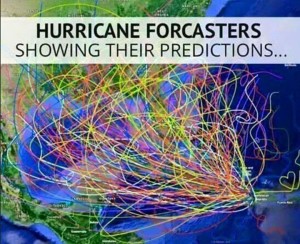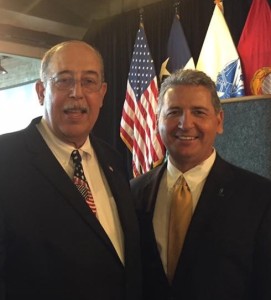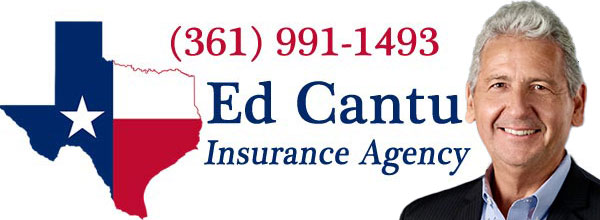Do You Know Where the Next Hurricane will make Landfall?

Neither do the experts but one thing is certain… September is Texas’ peak Hurricane Season! The Houston Chronicle recently wrote “Since 1980, 23 hurricanes have at least brushed the Texas coast in September, compared with seven in July, 19 in August and 13 in November.” As the month of August comes to an end this week, our Corpus Christi area and the entire Texas Coast heads into peak hurricane season, so the most important questions is… Are you Ready?

Retired Lt. General Russel Honore with Ed Cantu
Retired Lt. General Russel Honore (Leader of Hurricane Katrina Aftermath Task Force) says that “Preparedness is the key” and that you must have a Hurricane Emergency Pack!
We suggest that your Pack includes the following:
- Water, one gallon of water per person per day for at least three days, for drinking and sanitation.
- Food, at least a three-day supply of non-perishable food.
- Battery-powered or hand crank radio and a NOAA Weather Radio with tone alert and extra batteries.
- Flashlight and extra batteries.
- Cash before the banks close and ATM’s run out.
- Copies of important papers.
- First aid kit.
- Whistle to signal for help.
- Dust mask to help filter contaminated air and plastic sheeting and duct tape to shelter-in-place.
- Moist towelettes, garbage bags and plastic ties for personal sanitation.
- Wrench or pliers to turn off utilities.
- Manual can opener for food.
- Local maps because you may be without internet.
- Cell phone with chargers, inverter or solar charger.
In addition to getting your family, pets and homes safe and prepared, there are various state websites for hurricane preparedness and evacuation, including telephone numbers. Some important contacts include the Texas Statewide Road Conditions which can be called at 1-800-452-9292.
Another great source to help with your hurricane preparedness is the National Hurricane Center (NHC) because being prepared for a hurricane in our coastal region is very important. And last but not least, when was the last time that you reviewed your personal home, windstorm and flood insurance? Do it as soon as possible before it’s too late or better yet, call me at 361 991-1493 so that we can help review your protection with you.
Because We Care!
Ed Cantu



